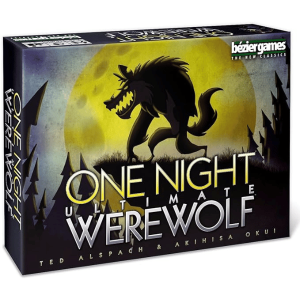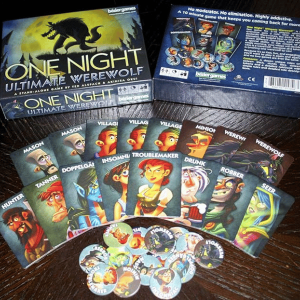Werewolf
£14.99
The werewolf, a mythical being that transforms from human to wolf, has fascinated people for centuries. Rooted in ancient mythology, this creature symbolizes the duality of human nature, embodying both fear and allure. Werewolves are known for their superhuman strength, heightened senses, and regenerative powers, making them formidable in folklore and popular culture. From classic literature to modern films and video games, the werewolf’s story has evolved, reflecting deeper themes of identity and transformation. Today, werewolves continue to captivate audiences, exploring the primal instincts within us all.
45 in stock
Discover the Mystical World of the Werewolf

The werewolf, a creature of legend and lore, has captivated human imagination for centuries. With its roots deep in mythology and folklore, the werewolf is a symbol of the dual nature of humanity, representing the struggle between our civilized and primal instincts. This fascinating creature, often depicted as a human who transforms into a wolf, embodies both fear and fascination, making it a perennial favorite in stories, movies, and games.
Origins and Mythology
The werewolf myth can be traced back to ancient civilizations. In Greek mythology, the story of Lycaon, who was transformed into a wolf by Zeus, is one of the earliest accounts. Similarly, Norse mythology features tales of warriors who could transform into wolves. These early stories highlight the werewolf’s association with strength, ferocity, and the supernatural.
Transformation and Traits

The transformation from human to werewolf is often depicted as a painful and violent process, usually triggered by the full moon. This change is not just physical but also mental, with the human losing control and succumbing to the animalistic instincts of the wolf. Werewolves are typically portrayed as having superhuman strength, heightened senses, and regenerative abilities, making them formidable creatures.
Cultural Impact
Werewolves have had a significant impact on popular culture. From classic literature like “The Werewolf of Paris” by Guy Endore to modern films such as “An American Werewolf in London,” the werewolf has been a versatile character, adaptable to various genres and settings. Television series like “Teen Wolf” and video games like “The Witcher” continue to explore and expand the werewolf mythos, introducing new generations to these captivating creatures.
Symbolism and Interpretation
The werewolf is often seen as a symbol of the inner beast within all of us. It represents the conflict between our civilized self and our primal urges. This duality makes the werewolf a powerful metaphor in psychology and literature, exploring themes of identity, transformation, and the nature of humanity. The fear of losing control and becoming something monstrous resonates deeply with audiences, adding to the werewolf’s enduring appeal.
Modern Interpretations

In modern times, the werewolf has evolved from a monster to a more complex character. Contemporary stories often depict werewolves as part of secret societies or clans, struggling to control their transformations and live alongside humans. This shift reflects a broader trend in storytelling, where monsters are given more depth and humanity, making them more relatable and sympathetic.
Werewolves in Popular Media
- Literature: Books like “Twilight” by Stephenie Meyer and “The Last Werewolf” by Glen Duncan explore the emotional and existential aspects of being a werewolf, blending romance and horror.
- Films: Movies such as “The Howling” and “Underworld” showcase the werewolf’s ferocity and the eternal battle between werewolves and other supernatural beings.
- Television: Shows like “Buffy the Vampire Slayer” and “Supernatural” feature werewolves as recurring characters, adding depth to their mythos and exploring their interactions with other creatures.
- Video Games: Games like “The Elder Scrolls V: Skyrim” allow players to experience life as a werewolf, complete with transformations and unique abilities, adding an interactive element to the lore.
Werewolf Lore in Different Cultures
Different cultures have their own interpretations of werewolves. In European folklore, werewolves were often seen as cursed individuals, while Native American legends speak of skin-walkers, shamans who could transform into wolves. These variations enrich the werewolf myth, adding layers of meaning and complexity to the creature’s story.
The Werewolf’s Place in Modern Society
Today, the werewolf remains a potent symbol in discussions about identity and transformation. Its ability to adapt to different cultural contexts and its enduring presence in media attest to its significance. Whether as a metaphor for personal struggle or as a thrilling character in a supernatural tale, the werewolf continues to captivate and inspire.
See more: here
Reed more: here
Be the first to review “Werewolf” Cancel reply
Related products
Party Board Games
Party Board Games
Party Board Games
Party Board Games
Party Board Games















Reviews
There are no reviews yet.